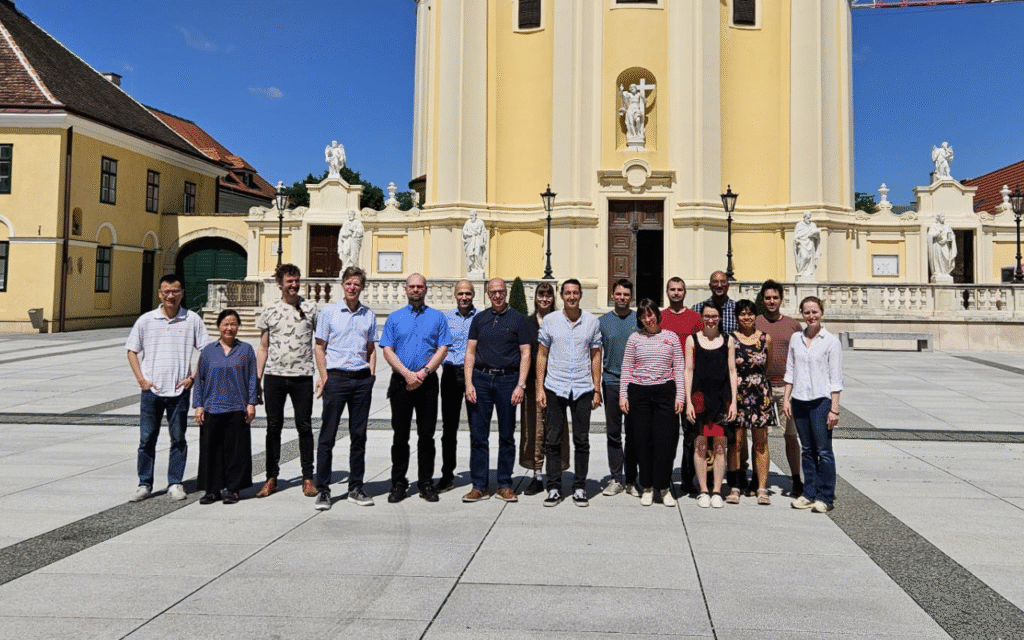For the last four years we’ve been running 2-week intensive modeling schools in Bilbao, plus a small number of dedicated training events (usually concentrating on specific services or contexts) in various locations. As every previous participant knows, these events have been directed to advanced modelers, in line with our key investment for the first phase of ARIES: building community and “prime” the base of data and models that makes ARIES possible.
This first phase is nearing completion, and we’re thinking of the next. ARIES is potentially the easiest and most intuitive assessment technology in existence, as only a simple conceptual query needs to be specified in order for the AI to build a potentially large and complex suite of models without further user intervention. But this has not been the usage paradigm so far, because 1) the main investment from a software perspective has been to support modelers first, then regular users; and 2) not enough general ES model components were available to support the building of ES solutions for a broad enough class of contexts. At the same time, we are reaching the full realization of an ES conceptual model that sees ES not as “mappable” stocks, but as the throughput of an explicit flow network between natural and social agents.
We are happy to report that, thanks in no small part to the community built during the first four editions of our Spring University, our models and infrastructure are reaching the point where a more diverse audience will be able to utilize ARIES. The key component of this strategy will be an alternative interface we call the “ARIES Explorer“, of which you can see an early preview in the picture that graces this post. The Explorer enables a drag-and-drop workflow that allows users to parameterize and run ES assessments with very little training. We are discussing how the availability of the Explorer will change our training offers, which will probably be run in a scaled way as follows:
- A 3-day training should be just enough to become proficient with the Explorer and the ES conceptual model, learning to run assessments and interpret results with very limited need for data submission or other input beyond context and priorities;
- Two more days would provide the opportunity for higher-level work with the Explorer, for example for GIS experts to learn how to use and annotate their data, and for scenario developers to learn how to define, run and compare alternative, more complex scenarios;
- Finally, one more week would provide the remaining training for advanced modelers and coders who can dig deeper into the models and may want to contribute models and/or data to the ARIES “ecosystem”, for themselves and/or others to use. ARIES is a pretty different technology than most of the “competition”, so while the explorer training will be mostly about exploiting the ES flow paradigm and interpreting the results, without requiring modeling skills or touching on the modeling complexities at all, the training for modelers will be, unashamedly, about semantic annotation and component reuse, and will be intended also for modelers who have less interest in ES and more in semantic and integrated modeling.
People would be able to attend a 3-day, 5-day or 2-week training as it suits their interests, time and skills. As a result of this reorganization, 2017 will be a transition year, when we will skip the regularly run Spring university and run two main events:
- a Summer hackathon for the ARIES core team and close friends, by invitation only;
- a Fall/Winter ARIES masterclass (to be announced soon) intended for selected previous participants and collaborators to catch up with the many innovations of the last years and to provide them with a chance to have an advance look at, and maybe help us beta test, the Explorer.
If you are one of those who were waiting for the 2017 Spring University to be announced, let us know and we may be able to share indications for more limited training events that we are discussing with various partners for this year, or – if there is enough interest – we may consider providing some online alternatives. Same if you represent an institution willing to collaborate on a more regular basis. Our training events so far are targeted to (very) IT-savvy people. By their nature, these require a minimum of one week (ideally two) and 3+ trainers, and are quite intense. In general, we’re very keen of expanding our training opportunities, and particularly of collaborating with institutions that could become more regular actors in the ARIES community – for example by hosting yearly training events, sharing research projects and PhD programs, or contributing to the development of either the model base or the infrastructure.
Looking forward to an exciting ARIES future!
Ferdinando and the team






